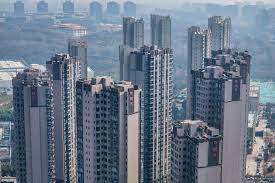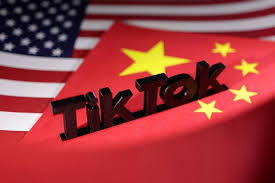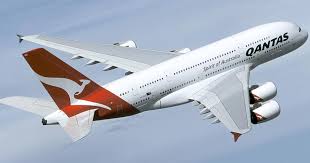China Evergrande, the most indebted real estate developer in the world, was forced into liquidation by a Hong Kong court after an unsuccessful attempt to restructure $300 billion in debt to bondholders and banks stoked concerns about China’s mounting debt load.
Judge Linda Chan stated on Monday, “It would be a situation where the court says enough is enough.” In light of Evergrande’s insolvency and the “lack of progress on the part of the company putting forward a viable restructuring proposal,” she stated the court had the right to compel the company to wind up its operations.
China Evergrande Group is one of the several Chinese developers that have failed since 2020 as a result of official efforts to control ballooning debt that the ruling Communist Party perceives as a danger to the country’s faltering economic expansion.
However, the crackdown on excessive borrowing sent the real estate market into meltdown, which hurt the economy and unsettled financial systems both inside and outside of China.
Laptops 1000Chinese authorities have stated that there is a chance that Evergrande’s collapse won’t have a worldwide ripple effect. Evergrande owes foreign creditors approximately $25.4 billion, according to court records viewed on Monday. Its whole liabilities surpass its roughly $240 billion in assets.
The records state that the company’s extreme insolvency and inability to pay its debts are undeniable.
China’s mainland accounts for almost 90% of Evergrande’s business. The company’s recovery attempts were made more difficult in late September when Hui Ka Yan, also known as Xu Jiayin, the chairman, was taken into custody by the police on suspicion of committing “crimes.”
The impact of the liquidation order on China’s financial system and Evergrande’s operations remains uncertain, given the latter’s challenges in fulfilling its commitment to provide paid-for apartments to families who have invested their life savings in it.
Before being removed from trading, Evergrande’s Hong Kong-traded shares saw a nearly 21% decline early on Monday. However, the benchmark Hang Seng index for Hong Kong recorded a 0.9% increase, and the share prices of certain real estate developers increased.
The biggest real estate developer in China, Country Garden, saw an initial boost of around 3% but then stagnated. Holdings in Sunac China increased 2.4%.
Shenzhen’s A-share index plunged more than 2%, while the Shanghai Composite index dipped 0.9%.
To give Evergrande time to “refine” a new debt restructuring plan, the Hong Kong court granted the company a respite in December.
Laptops 1000However, Evergrande “has not demonstrated that there is any useful purpose for the court to adjourn the petition—there is no restructuring proposal, let alone a viable proposal that has the support of the requisite majorities of the creditors,” according to Judge Chan.
She chastised the corporation for releasing merely “general ideas” about what it might or might not be able to submit as a reorganization proposal in comments that were made public on the Internet. She stated that if the court wound up Evergrande, creditors’ interests would be better safeguarded.
Representing an ad hoc group of creditors, Fergus Saurin stated on Monday that he was not shocked by the result.
“The business has not communicated with us.” He stated, “There have been other instances of last-minute engagements that failed.
According to Saurin, his group conducted itself with integrity during the talks. He stated that Evergrande “only has itself to blame for being wound up.”
Making sure that “as much of the business as possible (is) retained, restructured, and remains operational” was the first objective for Tiffany Wong, one of the two liquidators chosen by the court from the multinational services firm Alvarez & Marsal.
Wong declared, “We will take a methodical approach to protect and restore value for the creditors and other stakeholders.” She noted that taking into account any workable restructuring ideas is part of that.
Laptops 1000According to Chinese news source 21Jingji, Evergrande CEO Shawn Siu expressed the company’s “utmost regret” over the liquidation order.
It was stressed that the domestic and international components of the group are separate legal companies and that the ruling solely applies to the China Evergrande unit, which is listed in Hong Kong. According to Siu, Evergrande will work to keep things running smoothly and give buyers access to houses.
China’s economic development was fueled by real estate, but when builders transformed cities into forests of residential and office towers, they took on a lot of debt. Due to this, total debt held by corporations, governments, and households has increased to an exceptionally high level for a middle-income nation—more than 300% of yearly economic production.
In 2021, Evergrande experienced its first financial default, shortly after Beijing had tightened financing restrictions to real estate developers in an attempt to curb the real estate boom.
Hong Kong, a former British colony, has its legal system, but it is becoming more and more impacted by China’s legal system, which is run by communists. Observers claim Evergrande’s bankruptcy case is more of a test case, even if mainland courts have occasionally acknowledged bankruptcy decisions made in Hong Kong.
Laptops 1000The liquidation order, according to Kaiyuan Capital managing director Brock Silvers, is expected to have a greater immediate effect on foreign investors’ faith in China’s financial markets than it will on Evergrande’s activities in mainland China.
“There won’t be many noticeable differences, so onshore, Evergrande tomorrow will look a lot like Evergrande yesterday,” he predicted.
It will be a challenging and intricate procedure for regulators to restructure Evergrande and other financially troubled real estate firms, according to David Goodman, director of the University of Sydney’s China Studies Centre.
Goodman stated, “The government would have reached them two or three years ago if it could see simple answers to these problems.”


















